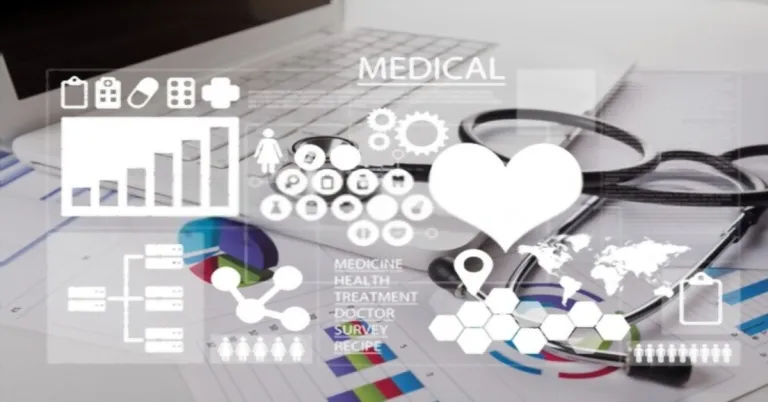
Remote employment, new consumer debt restrictions, and increasing patient financial accountability are emerging developments in healthcare revenue cycle management. The globe is changing, and so are the activities around medical care reimbursement. Medical care organizations are recovering from a severe public health emergency in which all support lines were cut to focus on avoiding the spread of a dangerous virus.
A digital revolution is underway in healthcare. The commercial side of healthcare has become even more complicated due to the change in clinical EMR usage to comply with Meaningful Use. Manual procedures historically had a significant impact, and healthcare suppliers are now actively looking for ways to minimize operations while improving performance. When these innovations come together, they will usher in a new era of revenue cycle management (RCM). How healthcare organizations respond to these developments will determine how they maximize financial success. A multitude of factors goes into running a successful medical practice. One of the most important is revenue cycle management.
What is Revenue Cycle Management (RCM)?
Revenue Cycle Management (RCM) is the process used by healthcare systems to discover, collect, and manage revenue from payers for the services given. A successful RCM process is important for a healthcare practice to be financially viable while providing excellent patient care. The process is over when all fees get accepted for the consultation and therapy.
Revenue cycle management aims to locate and address any sources of friction in the provider’s revenue cycle. Care providers may maximize their claim reimbursements and raise their income with effective revenue management. To run the process smoothly, several care providers choose to outsource revenue cycle management services.
The Top 5 Healthcare Revenue Cycle Management Trends
- Trend #1: The Healthcare Revenue Cycle and Remote Work
According to a recent survey by Alpha Health, 75% of healthcare companies aim to revamp their revenue cycle operations due to the COVID-19 pandemic.
Additionally, nearly one-third of firms across all industries want to provide work-from-home alternatives for their employees permanently. However, for healthcare companies, moving from traditional office locations to remote work arrangements has proven to be complicated. They must examine how to sustain efficiency while integrating new technologies, procedures, and team-building tactics that foster a healthy, long-term culture.
- Trend #2: Shift to the Patient as Payer
The patient is gaining momentum as a new payer. It’s not only about simplifying a business procedure. It comes down to determining who is likely to pay, when, and how to interact with them to ensure payment. According to surveys, healthcare suppliers are having trouble collecting patient financial responsibilities on time, with around 74% requiring more than a month. Furthermore, two-thirds of physicians said that the delay had made patient receivables their top revenue issue. As a result, institutions must devise methods that address patients’ financial responsibility while expediting collection.
- Trend #3: Technology Investment
While businesses and organizations have already hopped on the “digital transformation” bandwagon, healthcare BPO companies have more challenges when it comes to implementing digital tools. The transition from paper to electronic records cannot happen overnight. Similarly, many medical service firms have outdated frameworks requiring extensive improvements before delivering innovative solutions. Existing and new regulations further restrict their choice of technology merchants, as does their need for platforms with various capabilities. They need plans to handle instalments, claims submissions, patient paperwork, and patient attention.
- Trend #4: Data Security
Healthcare organizations have become a target for hackers and cybercriminals. There have been more recent incidents of health data security breaches. However, new laws controlling consumer data collection and security greatly influence RCM operations. According to IBM’s most recent Cost of a Data Breach research, healthcare was the industry most severely harmed by data breaches in terms of financial loss. Across all sectors analysed, health data breaches lasted an average of 329 days. To lessen the risks posed by cyberattacks and other vulnerabilities, RCM teams are embracing and assessing digital technologies and sensitive financial and medical data. You will need to use digital solutions and processes to protect your company from security breaches and keep up with these legislative advances.
- Trend #5: RCM Automation Evolution
Revenue cycle management and follow-up in healthcare are still primarily manual. RCM automation is becoming more popular as providers realize the benefits of digitized, faster operations. As medical reimbursement improves, RCM automation will be able to assist businesses in addressing pandemic-related difficulties in addition to those previously mentioned. Once manual maintenance can be removed, productivity will be increased more than ever by identifying solutions powered by intelligence, machine learning, and RPA.
The Conclusion
The changing healthcare environment makes revenue cycle management somewhat elusive. New laws and reforms have forced the sector to change and left many hospitals trying to maintain their income under a value-based care reimbursement model.
Today’s technology platforms may help providers, payers, and customers engage and communicate more effectively, resulting in a more resilient revenue cycle management approach.
